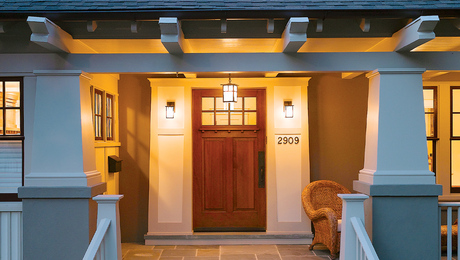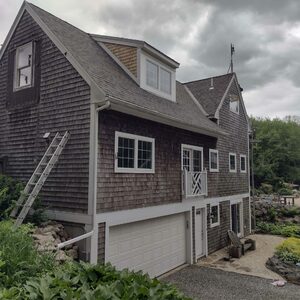replacement doors and windows
is there a source for non bias information on how to choose quality built and most energy efficient replacement doors and windows.
do I have to buy replacement? why not regular? what company is best at makeing quality and high efficient ones? trim vinyl vs fiberglass, what is the best gas, what about the coatings. Sliding vs French?
I purchased a house that has 2, 8′ and 1, 4′ sliding glass patio doors and several casement windows that the seals have broken. The rest will be replased as they are not efficient but, worst offenders first.
I have tried online. I am just not finding what I think I need.So o ye of much better computer skills and experience I sure could your help.



















Replies
For what it's worth, there is some info at the
Consumer Reports website: http://www.consumerreports.org/cro/home-windows/buying-guide.htm
To see the ratings, though, you have to subscribe.
"Replacement" doors and
"Replacement" doors and windows are units that are designed to be easy to insert into existing openings without having to disassemble the walls (eg, remove siding) to fasten and seal things. They are more expensive but usually save enough in labor and other materials to make them worthwhile. But if you will be doing major remodeling anyway (possibly including residing) then standard units are generally cheaper and have fewer compromises in terms of flashing and sealing.
I'll let others address the other questions, but note that many issues are just a matter of personal preference.
In an nutshell:
Insert style replacements are designed to be quick and profitable for the installer.
Insert style replacements are not as permanent of a solution in terms of weatherability, as they rely solely on a sealant (Caulking). If you use the insert method, you will need to religiously maintain the caulking every year.
In some situations, esp block and brick, insert windows will be your only option.
The best replacement install you can achieve, involves removing the siding around the window frame, and installing the new window directly to the wall sheathing. Find an installer that uses a flashing tape and knows how to tie it into whatever existing housewrap you may have.
Vinyl windows are good, up to a point. Depending on their exposure, the can be dead in 5 years, or last as long as 15. Around here, (Colorado) ten years is about the max.
Fiberglass windows should last quite a bit longer, but I haven't seen any that have been installed for more than a few years, so I can't prove that.
Aluminum clad windows are supposedly the best, but I have seen some brands fail in as little as ten years. If you purchase alum clad, stick with the more expensive lines in the respected brands, Pella, Marvin, Andersen.
The cheaper versions of alum clad, typically have really thin aluminum, and the joinery details don't prevent the water from getting into the frame.
There are of course, exceptions to everything I just typed. It would also help if you posted some pics, or gave an indication to how old your house is, what type of siding, do you live in the desert or on the coast..
replacement windows
your reply is most helpful. the house was built in two stages the lower level below ground ( lot of tornados) built 1980 lived in for about 2-3 years. then one story red brick on ground level. All of the windows on the east and south side have failed. The north are still fine. no west windows. The failed windows get full sun. no protection. FHB came out with an article on replacing windows in brick this last issue which will be helpfull.
Getting someone willing to do quality work will be the problem. So far the geo thermal we had installed is a mess and needs to be redone.the drywall was so sloppy it has taken me a long time to correct, thankfully it was just a stairwell and one bedroom. Different people, but came recommened. I have been dreading the windows.